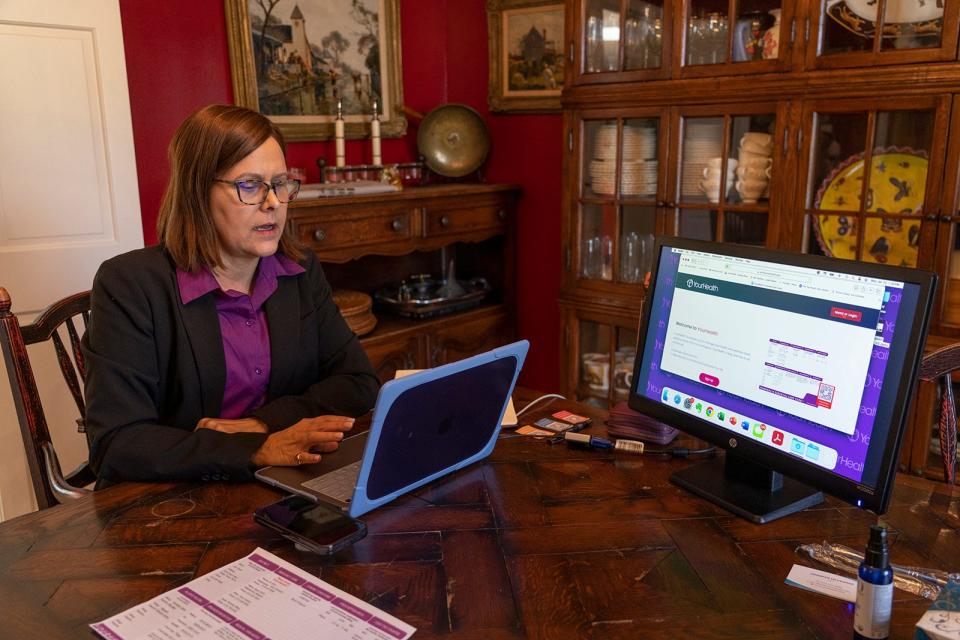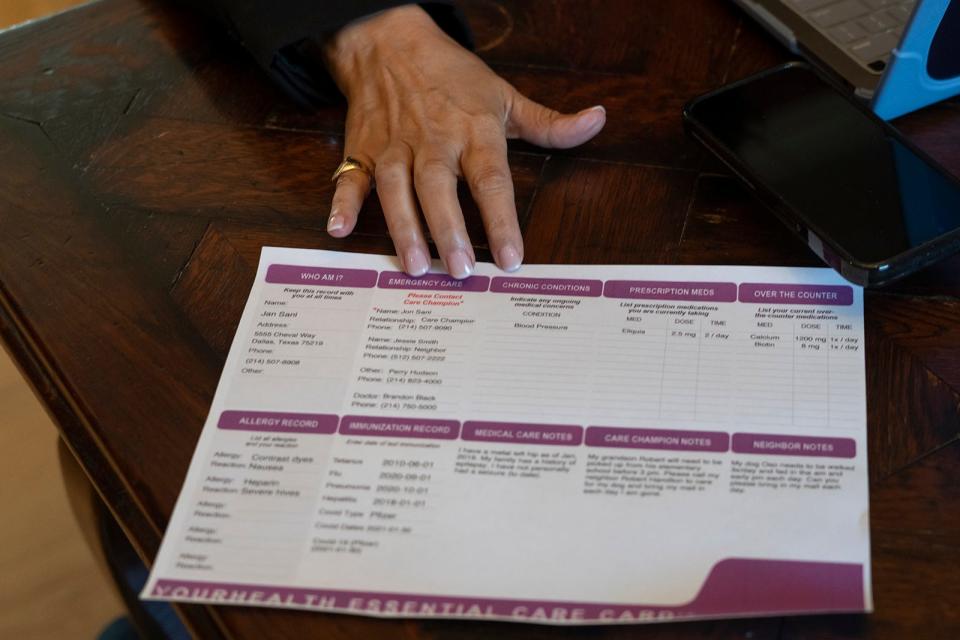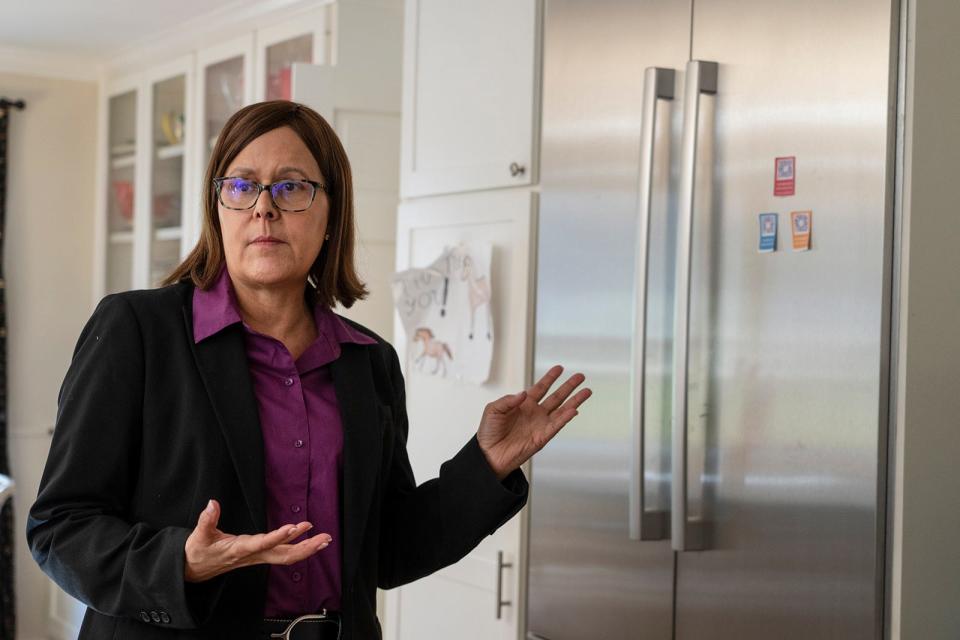Would you store your medical history on a QR code? Here's how.
What would happen if you had a medical emergency? Would the emergency room doctors know what medications you are taking? Would they know about your allergies? Would they know about your pre-existing conditions that might skew your blood work? Would they know who your emergency contact is? And would that emergency contact know all your important medical information to give to the emergency department staff?
Those questions kept Austinite Jennifer Devening looking for easy answers.
She co-founded Your Health, a medical records program for consumers, after years of being in tech in Silicon Valley and Austin, including time at Oracle.
The idea came to her after experiencing her own health crisis. Devening, 58, was diagnosed with metastatic breast cancer 11 years ago. She has 11 doctors, seven patient portals and a constantly changing list of medications. She also has some medical allergies as well as medications she can no longer take because of other medications she is now taking. She's an organized person, but she had trouble accessing all her information and keeping everything straight. "It's such a broken system," she said of the medical records portals.

How do you access your health record in an emergency?
If you've ever been to the doctor or emergency room, you know how many forms you have to fill out. What is the name of that medication I take? The dosage? My doctor's name? Phone number? Where is my insurance card? Those are all the questions that suddenly you don't know the answer to. It's even worse if you are taking a loved one to the doctor or ER. And if you're not conscious, doctors must treat you quickly without having the answers.
Your Health is an online portal and app that the patient controls. You put in your prescriptions, your doctors, your medical conditions, your allergies and your doctors' information as well as your emergency contacts.
Your Health allows you to store and update that information at any time. You can then print an "essential care card" with all that info on it and keep it in your wallet next to your medical insurance card or driver's license. Emergency medical technicians are trained to look for your driver's license and your insurance card in an accident. You also can print out a QR code that you can attach to your insurance card or driver's license.
Health care: Is your hospital safe? Read the most recent safety grades
How can doctors, emergency contacts get your health records?
If you're brought to a hospital, anyone can scan that QR code with their phone or read your "essential care card" and find the information they need to treat you: your name, contact information, emergency contacts, medical conditions, prescriptions, allergies, etc. You also can add important information such as your blood type, if you're an organ donor or recipient, if you have a do-not-resuscitate order and other medical preferences.

Your Health has QR codes for your emergency contacts to access your information as well as QR codes for your neighbor who might need to check in on your family or pets if you couldn't, but who doesn't need your health records. Each QR code allows you to set the information you want for a specific group of people to access.
In addition to the care card and QR code in your wallet, Devening recommends putting the QR codes in your glove compartment and attaching them to your freezer door. Those are places where EMTs are trained to look for medication information in an emergency.
Emergency care: 'Lost in a frozen body': Austin ice climber returns to mountains after stroke
Can I link Your Health to my health portals?
No, but there is a resource section in Your Health. In it, you can put the online links, username and passwords to all your health portals to be able to retrieve your doctors' notes or recent lab work quickly. You also can set up a Google Drive or other storage site and put the link in the resources section of Your Health to be able to quickly access your health records. Devening said eventually there will be a storage system for those records in Your Health.

Is Your Health HIPAA compliant?
When you sign up for Your Health, you are consenting to putting your medical information on there. The information is only accessed by you and the people who scan your QR code, Devening said.
How much does Your Health cost?
Right now, Your Health is free. Eventually, there will be various plans, Devening said, such as a family plan that will have monthly subscription fees, but there always will be an essential plan for free.
Can I manage my family's health records?
Yes, eventually there will be a family plan with one username and password. Currently, you would set up different accounts for each family member with a different email.
What other uses could there be for Your Health?
Because cellphones have become so prevalent, Devening hopes to expand in the future to provide access to people who are unhoused as well as to people in less developed areas of the world.
This article originally appeared on Austin American-Statesman: Would you store your medical history on a QR code? Here's how.

